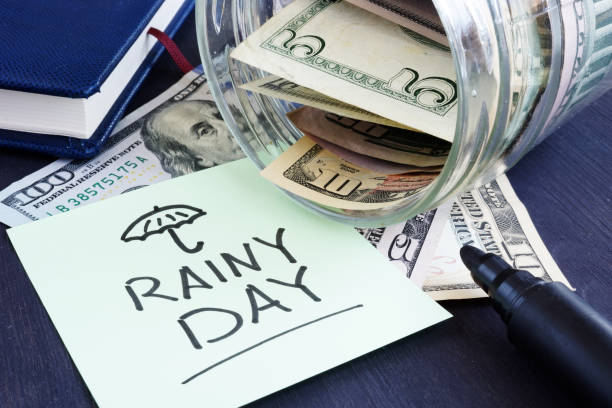If there is any misconception of anything in finance, it is definitely the power of compounding. It’s the key factor behind long-term wealth building, the reason early saving pays off, and the force that turns small habits into massive results. Whether you’re saving for retirement, investing in the market, or just setting aside a little cash each month, compounding is the powerful principle working silently in your favor.
Yet, many people underestimate it, they either don’t really understand it at all or don’t care to learn. In this article, we’ll break down what compounding is, why it’s so powerful, and how you can make the most of it starting today.
What Is Compounding?
Compounding is the process where your money earns interest, and then that interest starts earning interest, too. Over time, this cycle accelerates, and your balance grows faster and faster. It’s like a snowball rolling down a hill: small at first, but gaining speed and size with every turn.
In simple terms:
- Simple interest is when you earn returns only on your original amount (or principal).
- Compound interest is when you earn returns on both your original amount and any interest that’s already been added.
This difference may seem minor at first, but over years (or decades) it becomes massive.
A Quick Example
Let’s say you invest $1,000 at an annual return of 8%. Here’s what happens if you let it sit and compound:
- After 1 year: $1,080
- After 5 years: $1,469
- After 10 years: $2,159
- After 20 years: $4,661
- After 30 years: $10,063
Without adding a single extra dollar, your initial $1,000 grows tenfold over 30 years. That’s the magic of compounding. The longer your money stays invested, the harder it works for you.
Why Time Is Your Best Friend
The real power of compounding doesn’t come from the rate of return, it comes from time.
The earlier you start, the more time your money has to grow. And the best part? Even small amounts can add up to significant wealth if you start early and stay consistent.
Here’s a mind-blowing comparison:
- Saver A starts investing $200 a month at age 25 and stops at 35 (just 10 years), earning an average 7% annual return.
- Saver B starts investing $200 a month at age 35 and keeps going until 65 (30 years), at the same return.
Who ends up with more at 65?
Answer: Saver A, who only invested for 10 years, ends up with more money than Saver B, even though B invested for 3x longer. Why? Because Saver A’s money had more time to compound. Early dollars are worth more than later ones.
The Compounding Mindset
While compound interest is most commonly discussed in terms of investing or savings, the principle applies more broadly. Think of it like this:
- Good habits compound: Reading 10 pages a day may not seem like much. But that’s over 3,600 pages a year, a dozen books you otherwise might not have read.
- Skills compound: Learning something new, even in small doses, can lead to exponential personal or career growth over time.
- Debt compounds too: Unfortunately, compound interest works against you when you’re in debt. High-interest credit cards and payday loans can spiral quickly if you only make minimum payments.
The key is to get compounding working for you, not against you, and your budget.
Tips to Make Compounding Work for You
Here’s how to harness the full power of compounding in your financial life:
1. Start Early (Even If It’s Small)
Don’t wait for the “perfect” time to invest or save. Whether it’s $10 or $100, get started now. The earlier your money gets to work, the more it will grow.
2. Be Consistent
Automatic contributions to a savings account or investment portfolio ensure you’re regularly adding fuel to the fire. Set it and forget it.
3. Reinvest Your Earnings
Whenever you earn interest, dividends, or returns—reinvest them. Let them become part of the snowball.
4. Avoid Unnecessary Withdrawals
Pulling money out too often resets the compounding clock. Try to let it grow uninterrupted, especially for long-term goals like retirement.
5. Stay Invested During the Ups and Downs
Market dips can be scary, but pulling out during downturns disrupts the compounding process. Time in the market beats timing the market.
Don’t Let “Too Late” Stop You
Maybe you’re reading this in your 30s, 40s, or beyond and thinking, “Well, I missed the early-start train.” Not so fast. While starting young is ideal, it’s never too late to benefit from compounding. You just have to be more intentional.
You can still:
- Increase your contributions
- Take advantage of employer matches in retirement accounts
- Reduce high-interest debt (which frees up more for investing)
- Commit to long-term investing without panic-selling
Every dollar you invest today is a future dollar working for you tomorrow.
Final Thoughts: Let Time Be Your Ally
Compounding is one of the few forces in finance you don’t have to work harder to take advantage of—you just have to give it time and consistency. Whether you’re investing for retirement, building a college fund, or simply trying to grow your savings, compounding is your most loyal financial ally.
So don’t underestimate it. Start early if you can. Be patient. And let time do the heavy lifting.





